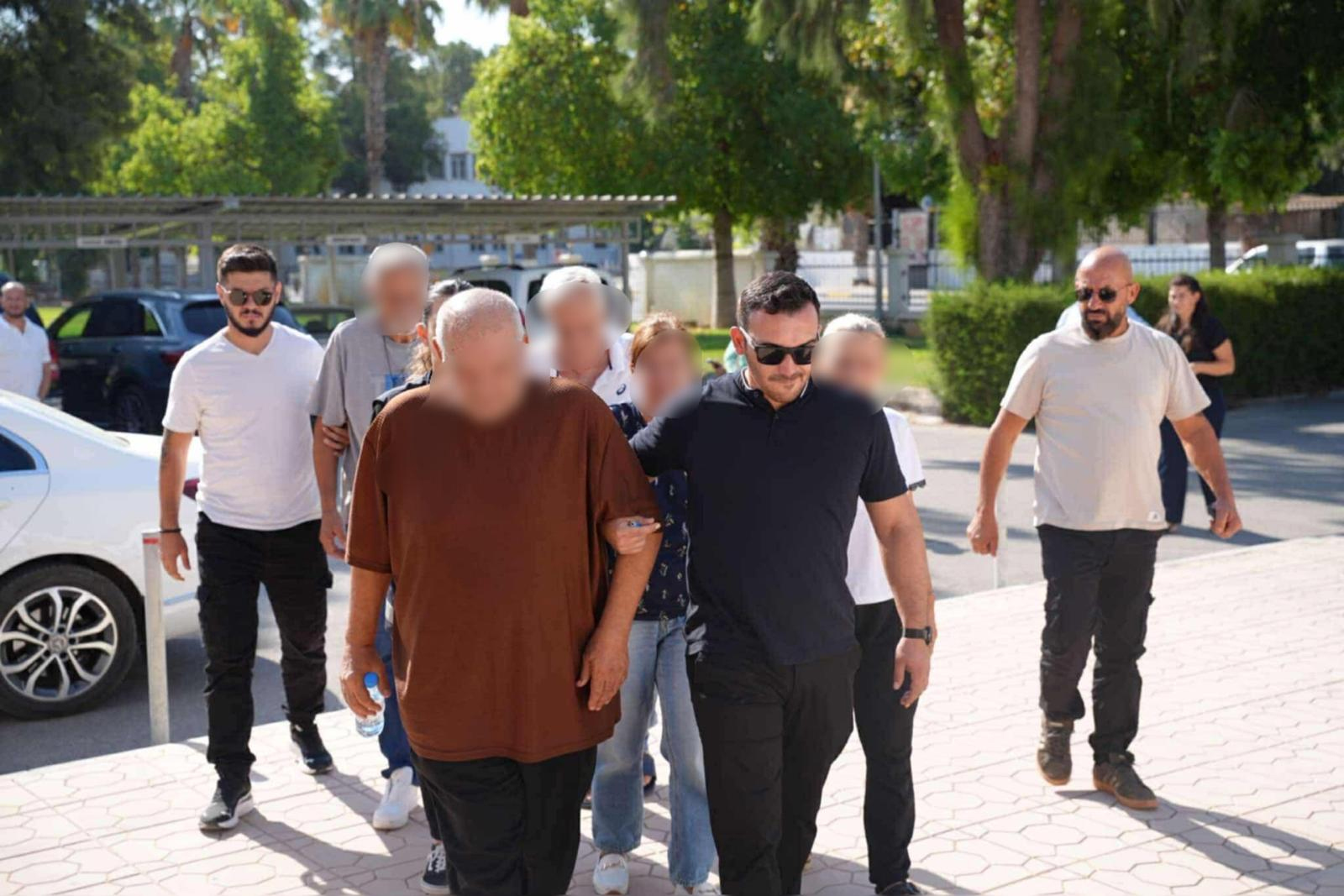Greek Cypriots found not guilty
By Tom Cleaver
The five Greek Cypriots who were arrested in the north in July were on Friday found not guilty of the charges they faced at a military court in northern Nicosia.
One of the five had been charged with illegally entering the north when the five crossed into the north via the Strovilia crossing point, near Famagusta, on July 19, while the other four stood accused of aiding and abetting the illegal entry.
Three of the five are now free, while the other two remain on bail, subject to a civilian court case in Trikomo, where they stand accused of privacy violations.
That court case will continue next Wednesday.
It was not made known if the prosecution intended to appeal the decision within the 14-day deadline.
The military court case had centred around the question of whether four or five identity cards were handed over to the Turkish Cypriot police for inspection at the Strovilia crossing point, with the police and the prosecution having alleged that only four identity cards had been presented.
Defence lawyer Öncel Polili said he would be travelling to Trikomo to collect the identity cards.
In its decision, the court said it had taken into account the “physical condition” of the five Greek Cypriots, all of whom are elderly, while also describing prosecution witnesses’ testimony as “uncertain” and the testimonies given by the five Greek Cypriots as “completely unwavering”.
According to newspaper Ozgur Gazete’s editor-in-chief Pinar Barut, who was present in court on Friday, this “gave the impression [that they were being] honest and truthful”.
The court also said that it “found no reason” why the Greek Cypriots would purposefully conceal one of their identities, especially in light of the fact that all five frequently used the crossing points to travel between the island’s two sides.
It also dismissed the idea that any intent on the part of the five Greek Cypriots to file a lawsuit regarding property they owned before 1974 may have led them to illegally enter the north.
On the matter of the testimony offered by Hakan Ozkanturk, the police officer who was working at the Strovilia crossing point when the five Greek Cypriots entered the north on July 19, the court said that “the responsibility for the security of the crossing points and the smooth operation of entry and exit procedures lies with the state”.
“The state should handle these matters with a good mechanism and organisation … otherwise, the state’s security will be at risk,” it stated.
It also stated that given the fact that thousands of people and cars use the island’s crossing points per day, it would be normal and understandable for the police on duty not to remember each car but criticised the fact that Ozkanturk had “made a point” of declaring that he had remembered the Greek Cypriots’ car.
Additionally, the court highlighted the fact that the five identity cards were not checked for fingerprint data, given that if they had been, the question of whether all five identity cards had been given to the police would have been resolved by the fingerprint evidence or lack thereof.
To this end, the court said there had been a “lack of investigation” on the part of the police and the prosecution.
Then, the court made reference to the infamous “blue folder”, which allegedly contained information related to property near Trikomo, and which was found in the possession of the five Greek Cypriots when they were arrested, saying that claims it could have been used for criminal activity are “baseless”.
Finally, the court returned to the fact that all five Greek Cypriots frequently cross between the island’s two sides, and stated that the defendant who had been accused of not showing the police his identity card had crossed between the island’s two sides 86 times between 2022 and 2025.
The other four Greek Cypriots, the court said, had crossed between the island’s two sides 325 times, 90 times, 55 times, and 407 times respectively.
Speaking after the proceedings, Polili said his clients went into court innocent and were leaving innocent, adding that what was important in this case was the solidarity of the Cypriots.






Click here to change your cookie preferences